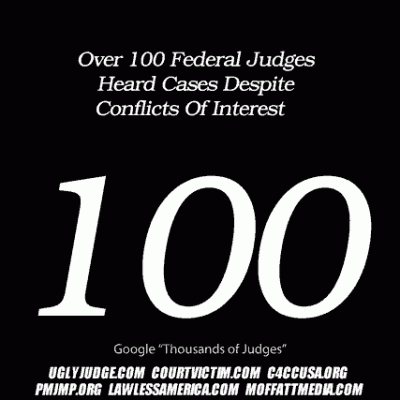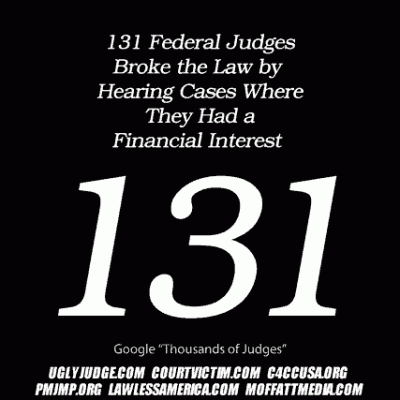Over 100 Federal Judges Heard Cases Despite Conflicts Of Interest

Nearly 700 federal court cases from 2010 to 2018 were heard by 131 judges who had financial ties to a company that was part of the case, the Wall Street Journal reported, and in two-thirds of those cases they ruled in favor of the company. KEY FACTS Some 131 federal judges heard 685 cases in which they or family members held stock in a company involved in the case, the Journal reported Tuesday. After being contacted by the Journal, 56 of the 131 judges had their staff begin to tell people in 329 lawsuits that the judge should have recused themselves. In 21 cases, a judge or family held more than $50,000 in stock of a company involved in the litigation, while in 173 cases the holdings were higher than $15,000. Rodney Gilstrap, the chief federal judge for the Eastern District of Texas, led his peers with 138 cases in which he had a conflict of interest. New judges could be assigned to those cases—potentially changing the ruling—and some people who lost cases have already asked for that, the Journal reported. Key Quote “If you are a federal judge, you should not be holding individual stocks,” said Andrew O’Connor, whose suit against Comcast was sent to a state court—a development favored by the company—by Judge Lewis Babcock, of the U.S. District Court of Colorado. At the time, Babcock or his family owned at least $15,001 in Comcast stock and may have owned as much as $50,000. For his part, Babcock said “I dropped the ball.” His office did not have an adequate process for checking for conflicts of interest, he said. Chief Critic The report “raises a more systemic problem of judges chronically neglecting their duty to disqualify in such… Read More




